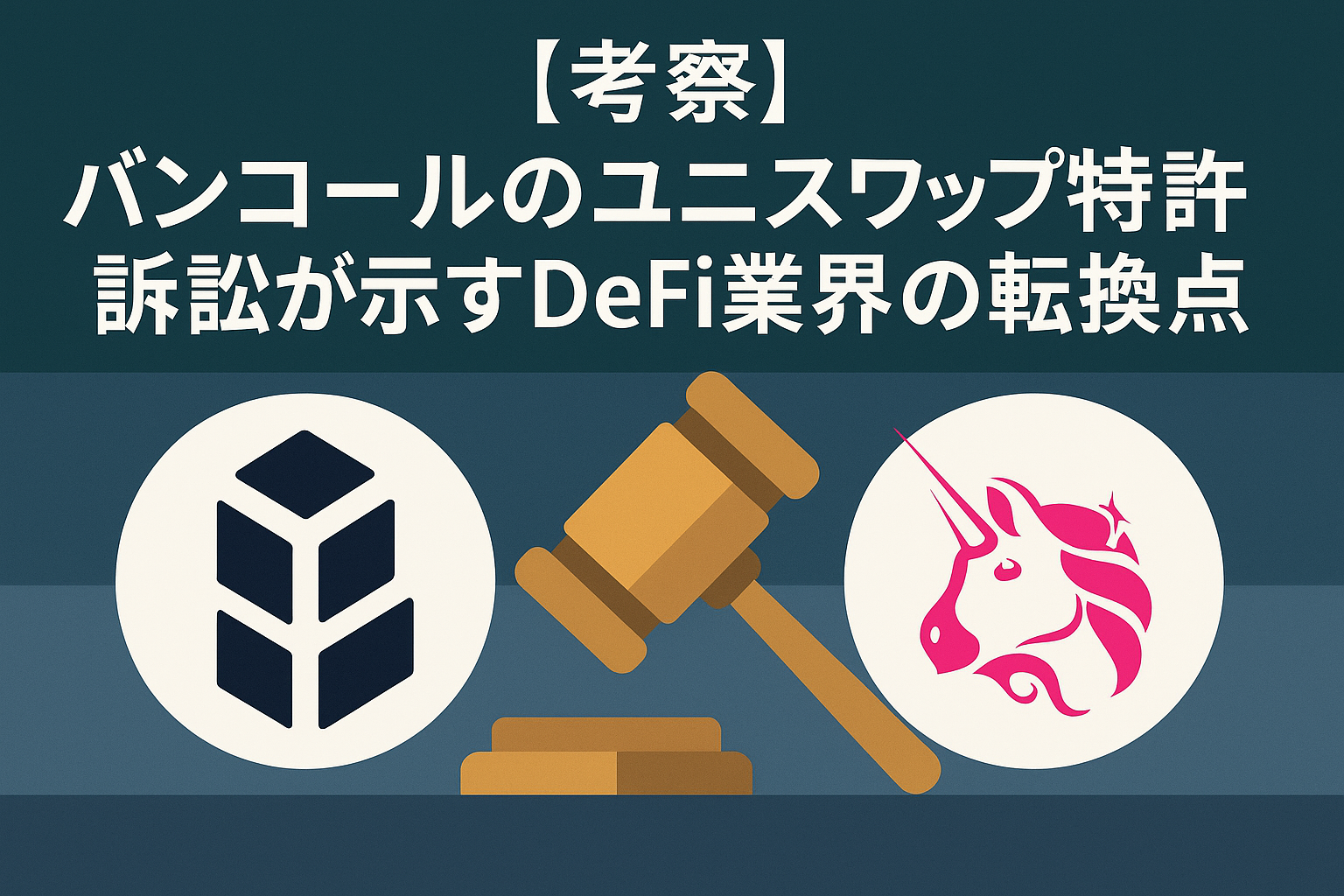On May 20, 2025, the decentralized finance (DeFi) industry was rocked by news that Bancor, a pioneer in the space, has filed a patent infringement lawsuit against Uniswap, the leading DeFi protocol. At the heart of the lawsuit lies a patent for the “constant product AMM” algorithm—a fundamental technology that underpins modern DeFi.
The Uniqueness of the Technology and the Basis for the Lawsuit
Bancor claims to have designed this algorithm in 2016 and obtained a patent in January 2017. Uniswap, in turn, released a protocol using a similar structure in 2018 and experienced explosive growth. Bancor contends that Uniswap has commercially succeeded by using this technology without permission.
The Patent vs. Open Source Dilemma
This lawsuit brings to light a fundamental tension: the balance between open-source ethos and intellectual property rights. While DeFi generally assumes open and transparent technology sharing, the fact that patents are being filed and enforced raises sensitive questions for the industry.
While monopolies created by patents can hinder innovation, failing to protect legitimate inventors’ rights could also undermine sustainable development. This lawsuit challenges the DeFi community to reconsider how to balance openness with commercial protection.
Market Disparity and Motives Behind the Lawsuit
Currently, Bancor trails far behind Uniswap in the DeFi market, with trading volume less than one ten-thousandth of Uniswap’s. In this context, the lawsuit may also be seen as an attempt to regain lost market dominance.
Some may interpret this move as a way to both claim direct damages and restrain Uniswap’s continued growth. However, there is also a risk that this could give the impression of “patent trolling”.
Potential Impact and the Future of the DeFi Community
This case is highly significant as it highlights intellectual property risks within the DeFi ecosystem. If Bancor’s claims are upheld in court, other projects may face similar legal threats.
Conversely, if Uniswap successfully invalidates the patent, it would reinforce the view that “DeFi technologies are public goods.”
A Litmus Test for DeFi’s Future?
This lawsuit is more than just a dispute over technological ownership. It provokes fundamental debate on the legitimacy of commercial success and the role of open innovation in the DeFi movement.
DeFi has been built on the ideal of decentralization—but ignoring the rights of the developers and technologies that support it would be self-defeating. The outcome of this lawsuit could become a litmus test for the maturity and ethical compass of the DeFi industry as a whole.

